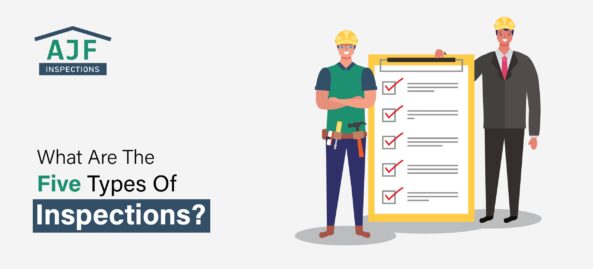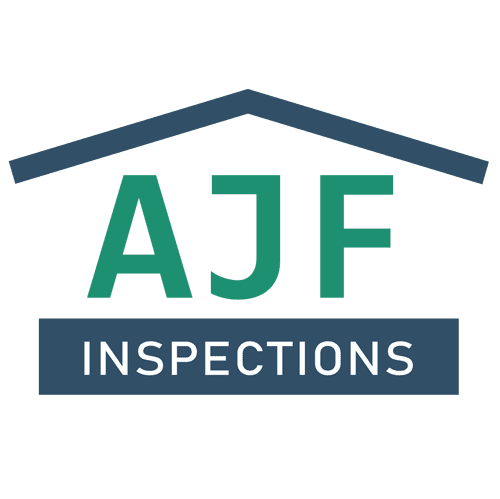
What Are The Five Types Of Inspections?
Across various domains, inspections play a vital role. They help ensure safety, quality, compliance, and informed decision-making.
The five major types of inspections are home inspection in Arizona, commercial property inspection, safety inspection, quality control inspection, and environmental inspection.
Each of these addresses specific needs and challenges. Let’s discuss each one of these in detail below.
Home Inspections
The main purpose of a home inspection in Arizona is to provide a detailed evaluation of your property. This evaluation serves as a means to ensure your residential property’s condition, safety, and overall integrity.
Typically, a professional home inspector performs a home inspection. These professionals acquire the specialized knowledge needed to assess various house components.
Home inspections are vital in helping you make informed decisions about your property. They ensure you are satisfied with what your property offers. With these inspections, you can also get an idea for future repair and maintenance.
What Do They Cover?
Structural Components
Inspectors inspect the property’s various structural components. These include the foundation, roof, walls, and overall structural integrity.
The main goal is to identify issues affecting property stability and soundness.
Exterior Assessments
This is another part of the property inspectors pay attention to. They thoroughly examine the property’s exterior. This covers the windows, doors, siding, and landscaping.
If the inspector notices any damage, wear, or potential document, they document it in their report.
Interior Evaluation
Home inspection in Arizona also covers the interior of your property. This covers the elements like electrical, plumbing, and HVAC systems. Further inspectors also assess the bathrooms and kitchen appliances. They inform you about the condition of various fittings and fixtures.
Safety Concerns
During home inspection, inspectors also check for safety features. This includes carbon monoxide detectors, fire alarms, and potential safety hazards.
This is to ensure the property’s safety – a critical aspect of the inspection.
Commercial Property Inspections
Home and commercial inspections are almost the same. However, a commercial property inspection covers a commercial real estate property. These include warehouses, office buildings, retail spaces, and industrial facilities.
Typically, a commercial property inspector conducts these inspections. These experts specialize in the evaluation of various aspects of commercial properties.
The primary purpose of this inspection is to provide a detailed understanding of the property to the parties involved. They can assess the property’s condition, safety, and overall functionality through these inspections.
What Do They Cover?
Exterior Inspection
An inspector examines the exterior of the commercial property. This includes the building’s structure, roofing, walls, foundation, and external elements. These exterior elements can range from parking lots to signage.
Interior Evaluation
This part of the inspection aims to review the property’s interior comprehensively. Inspectors tend to cover elements like:
- Plumbing systems
- Electrical systems
- HVAC systems
- Fire protection systems
- Elevators
- Interior structural components
Structural Integrity
A commercial inspection requires a detailed examination of the property’s structural integrity. This includes assessing foundations, load-bearing components, and potential structural issues.
Accessibility and Compliance
This step of the inspection is significant. The inspection checks that the building complies with different regulations. This may include building codes, regulations, and ADA requirements.
This is a vital step to ensure property adheres to legal standards.
Safety Inspection
A safety inspection is a thorough and systematic evaluation of a specific setting, asset, piece of machinery, or process. It spots potential dangers, ensures adherence to safety norms and standards, and maintains a safe environment for people.
Their primary objective is to minimize accidents, injuries, and health concerns. These inspections happen in various situations, including workplaces, public areas, building sites, and residential areas.
What Do They Cover?
Hazard Identification
Safety inspectors systematically identify and assess potential hazards. This includes physical, chemical, biological, and ergonomic hazards.
Each of these serves a different purpose and in another direction.
Regulatory Compliance
These inspections also review local, state, and federal safety regulations and standards. These can ensure that the environment or equipment complies with legal regulations.
This also includes adherence to Occupational Safety and Health Administration (OSHA) regulations in workplace settings.
Safety Measures and Equipment
This part of the inspection involves evaluating the presence and functionality of safety measures and equipment. These can vary from fire extinguishers to safety signs to safety protocols.
Quality Control Inspection
As the name suggests, these inspections assess the quality and compliance of processes, products, or services. These inspections ensure that the established specifications, standards, and customer expectations are followed.
The main goal of a quality control inspection is to spot flaws, deviations from the standard, and potential improvement areas. These inspections ensure the final good or service satisfies or exceeds the intended level of quality.
What Do They Cover?
Defect Identification
Quality control inspectors carefully examine products or processes to identify defects, irregularities, or deviations. The products must follow established quality criteria. This includes assessing physical attributes, performance characteristics, and compliance with specifications.
Standard Adherence
The inspection compares the product or process under evaluation to predefined quality standards. These standards include industry standards, internal standards, and regulatory requirements. They may also cater to customer specifications.
Root Cause Analysis
In case defects or non-conformities are identified. Quality control inspectors may investigate the root causes to address underlying issues. This helps in preventing future occurrences.
Environmental Inspection
Environmental inspection assesses, monitors, and assures adherence to environmental standards, rules, and regulations. This is to safeguard the environment and public health.
These inspections are carried out in a variety of locations. This may include industrial facilities, building sites, public works projects, and natural habitats. The main goal of these inspections is to evaluate and reduce potential environmental impacts and dangers.
What Do They Cover?
Environmental Compliance
Inspections assess adherence to environmental laws, regulations, and permits. These are related to air quality, water quality, hazardous waste management, emissions, and more. Ensuring compliance with these regulations is crucial to avoid legal consequences and protect the environment.
Hazardous Material Handling
Inspectors assess the storage, handling, and disposal of hazardous materials. This ensures that safety measures are in place to prevent accidents and spills.
Water Quality Testing
For inspections related to water resources, water quality is closely monitored. This involves testing for contaminants, pH levels, temperature, and other water quality indicators.
Air Quality Assessment
These inspections may involve monitoring and assessing air pollutant emissions. They will also evaluate the impact on air quality in the surrounding area.
Build a Safer and Healthier Environment
These five types of inspections play a critical role in their designated areas. Understanding their significance is crucial for excellence and responsible environmental stewardship. These inspections serve diverse purposes, ensuring safety, quality, and environmental compliance. With their systematic nature, you build and comply with safer, healthier environments and higher quality and compliance standards.
Seeking a dependable home inspection service you can rely on? Reach out to AJF Engineering for a thorough and trusted home inspection. Book your inspection today!
